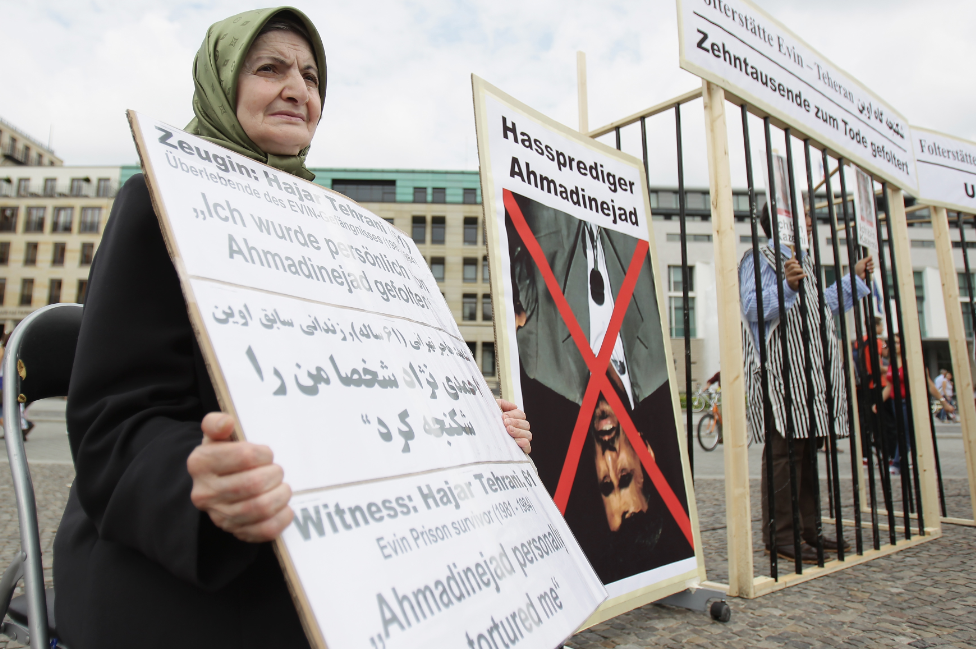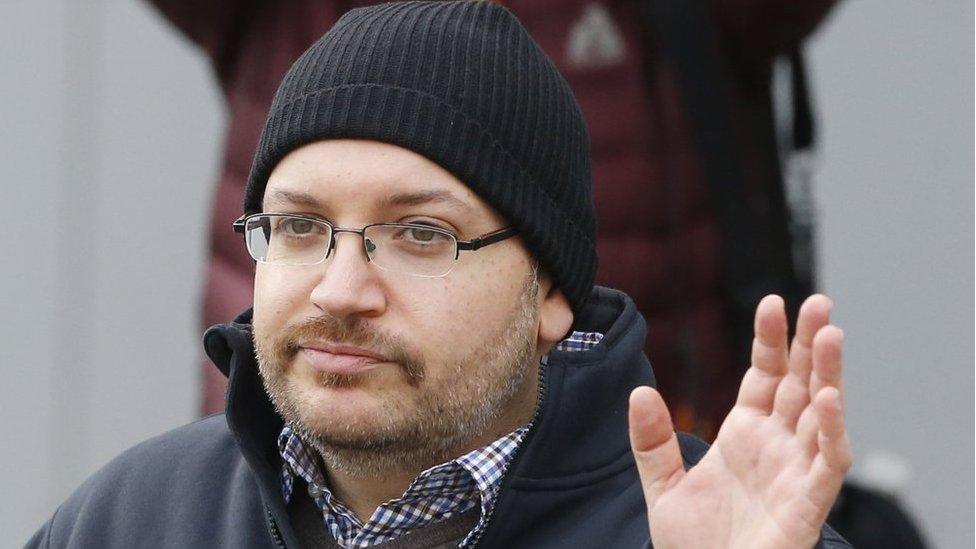Iranian writer given long jail term for story about stoning
- Published

Stoning is condemned internationally as a form of torture
A writer and human rights activist has been sentenced to six years' imprisonment in Iran for penning a story about stoning.
Golrokh Ebrahimi Iraee faces years behind bars even though her writing has not been published.
She was convicted of "insulting Islamic sanctities" and "spreading propaganda against the system".
Amnesty International called the conviction "ludicrous" and the trial "farcical".
Victims of stoning are executed by having rocks thrown at them until they are dead. In Iran, most are women accused of adultery.
Ms Ebrahimi Iraee's work describes the emotional reaction of a young woman who watches the film The Stoning of Soraya M - which tells the true story of a young woman stoned to death - and is so enraged that she burns a copy of the Koran.
The Iranian authorities found the piece on 6 September 2014, when the writer and her activist husband Arash Sadeghi were arrested by men believed to be members of the Revolutionary Guard.

Read more on Iran:

Ms Ebrahimi Iraee was transferred to Tehran's Evin Prison and held there for 20 days, without access to her family or a lawyer, Amnesty International says.
She says she was interrogated for hours while blindfolded and facing a wall, and repeatedly told that she could face execution for "insulting Islam".
She says she could clearly hear the interrogators threatening and verbally abusing her husband in the next cell. Mr Sadeghi has since said that he was beaten and tortured while in custody.
'Punished for her imagination'
Now the activist has been ordered to hand herself over to Tehran's Evin Prison to begin serving her sentence. Her husband is already serving 15 years in the infamous institution, which has a special wing designated for political prisoners, academics, intellectuals and journalists.
His interrogators allegedly used copies of his Facebook messages and emails to journalists and human rights activists - among them the BBC's Persian service - as "proof" of the charges against him.
Philip Luther, Amnesty's Director of Research and Advocacy for the Middle East and North Africa, said Ebrahimi Iraee "is effectively being punished for using her imagination".
He said Iran continues to justify the use of stoning in the name of morality.
"Instead of imprisoning a young woman for peacefully exercising her human rights by expressing her opposition to stoning, the Iranian authorities should focus on abolishing this punishment, which amounts to torture," he said.
- Published4 October 2016

- Published24 May 2016
- Published14 August 2016
